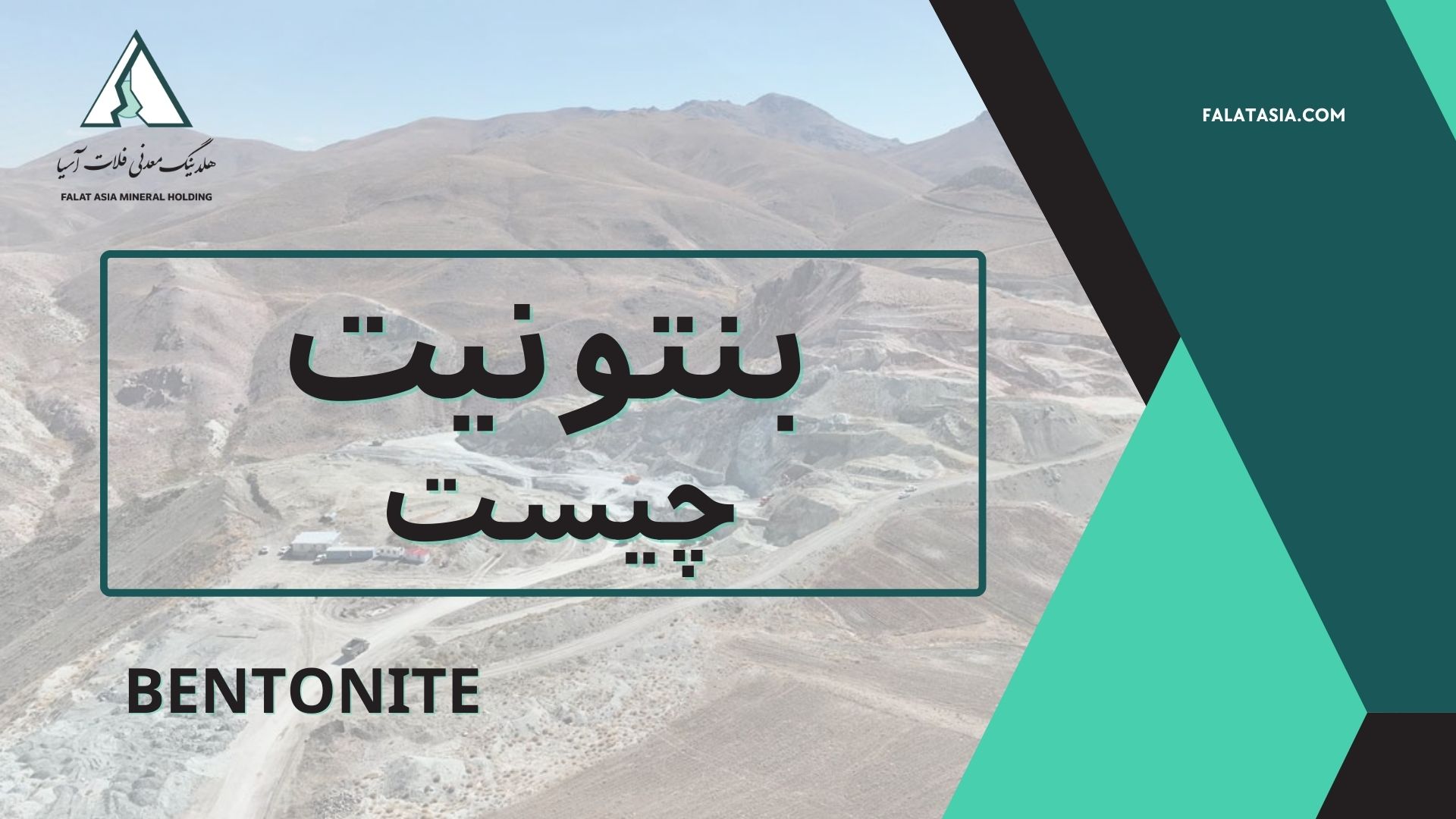Bentonite Mineral
Bentonite is a natural clay that, due to its exceptional properties, is widely used across various industries, including drilling, purification, agriculture, construction, and even pharmaceuticals. With its unique chemical structure, Bentonite can absorb water, swell, and create adhesion, making it one of the most commonly used minerals worldwide. In this article, we will provide a comprehensive review of the properties, types, applications, and benefits of Bentonite in different industrial sectors.
Bentonite
Bentonite is a type of natural clay primarily composed of the mineral montmorillonite. Montmorillonite is a hydrated aluminum silicate with a layered structure, highly capable of absorbing water and swelling upon contact with moisture. Bentonite is typically formed from the decomposition and chemical alteration of volcanic ash over millions of years and is mined in various regions worldwide, including the United States, China, India, and Iran.
Types of Bentonite
Bentonite is divided into two main types based on its chemical composition and the dominant cation present in its structure:
Sodium Bentonite
This type of Bentonite contains sodium cations, giving it higher water absorption and swelling properties than other Bentonite types. Sodium Bentonite can increase its volume several times when in contact with water, making it valuable for industries such as drilling and soil stabilization.
Calcium Bentonite
In calcium Bentonite, the dominant cation is calcium. Although it has lower swelling capacity compared to sodium Bentonite, it still possesses water absorption and adhesion properties. Calcium Bentonite is primarily used in industries such as purification, agriculture, and pharmaceuticals.
Properties and Characteristics of Bentonite
High Water Absorption and Swelling
One of the most significant features of Bentonite is its ability to absorb water and expand in volume. Sodium Bentonite, in particular, excels in this characteristic and can absorb several times its weight in water, making it highly useful for soil stabilization, drilling mud, and purification industries.
Adhesion and Gel Formation
Due to its layered structure and molecular interactions, Bentonite has high adhesion and gel-forming capabilities, which are employed in foundry sands and specialized cements.
Ion Exchange Capacity
Bentonite has a high ion exchange capacity, making it an effective material for water purification and improving agricultural soils. This property is particularly prominent in calcium Bentonite, which helps enhance soil fertility.
Chemical Stability
Bentonite is highly resistant to strong chemicals such as acids and bases, allowing it to be used in industrial chemical environments and complex processes.
Applications of Bentonite
Due to its multifunctional properties, Bentonite is used in a wide range of industries. The following are the most important areas of application for Bentonite:
Oil and Gas Drilling Industry
Bentonite is a key component in the preparation of drilling mud. In oil and gas well drilling, drilling mud is used as a lubricant, coolant, and stabilizer for well walls. Bentonite’s swelling and adhesion properties help prevent well wall collapses and improve material transfer. Additionally, Bentonite can prevent harmful substances from entering the drilling system.
Water Purification and Environmental Protection
Bentonite, with its high capacity to absorb pollutants and heavy metals, is used as a filtering agent in industrial water and wastewater purification. This mineral can absorb and separate toxic substances from water, making it valuable for environmental projects, such as contaminated soil remediation and preventing the leakage of pollutants.
Agriculture
In agriculture, Bentonite is used as a soil conditioner and moisture absorber. Calcium Bentonite improves soil structure, increases water retention capacity, and enhances ion exchange, leading to better crop growth. Bentonite can also serve as a carrier for agricultural fertilizers.
Foundry Sands
In the foundry industry, Bentonite is used as a binding material for the preparation of sand molds. Foundry sands mixed with Bentonite have high shape retention capabilities, aiding in the creation of precision metal parts.
Pharmaceutical and Cosmetic Industries
Bentonite is used in pharmaceuticals as an ingredient for tablet production and improving the physical properties of drugs. In cosmetics, Bentonite is employed for its ability to absorb oils and moisture, making it ideal for facial masks and skin cleansing products.
Construction Industry
In the construction industry, Bentonite is used as an ingredient in specialized cement production and for stabilizing unstable soils. In dam and tunnel construction, Bentonite helps prevent water infiltration into structures, making it essential in infrastructure projects.
Advantages of Bentonite
- Multifunctional: Bentonite’s diverse properties make it applicable across numerous industries, from drilling to agriculture and water purification.
- High Absorption Capacity: Bentonite’s strong ability to absorb water and chemicals makes it an effective material for purification and cleansing processes.
- Chemical Stability: Bentonite’s resistance to strong chemicals allows it to be used in industrial environments.
Disadvantages of Bentonite
- Variable Quality: The quality of Bentonite can vary depending on the mining region and the type of mineral, which may affect its performance.
- Extraction and Processing Costs: Bentonite extraction requires specialized equipment, and processing it for specific applications can be costly.
Bentonite Extraction and Processing
Bentonite is extracted from sedimentary deposits where this mineral has accumulated. Depending on the type of mine, extraction methods vary, ranging from surface drilling to underground mining. After extraction, Bentonite is transported to processing plants. There, it undergoes processes such as washing, drying, and grinding to prepare it in powder or granular form for use in various industries.
Environmental Impacts of Bentonite Use
As a natural and environmentally friendly material, Bentonite typically has minimal negative environmental impacts. However, excessive extraction and improper use of this material can lead to environmental degradation and soil erosion. For this reason, many countries promote sustainable methods for extracting and using Bentonite to minimize these impacts.
Future of Bentonite
With the growth of various industries and the demand for natural and sustainable materials, it is expected that the use of Bentonite will increase in the future. The oil and gas industries will continue to rely on Bentonite as a primary material in drilling, while its applications in water purification, agriculture, and pharmaceuticals are also on the rise. Furthermore, scientific research is ongoing to explore new methods for improving Bentonite’s efficiency in various industries.
Conclusion
Bentonite is a versatile and exceptional clay mineral that, due to its ability to absorb water, swell, adhere, and maintain chemical stability, is used in various industries, including drilling, water purification, agriculture, construction, and pharmaceuticals. As a natural and eco-friendly resource, Bentonite holds a promising future in industrial and environmental applications. Its unique properties will continue to make it essential for many industrial processes.



